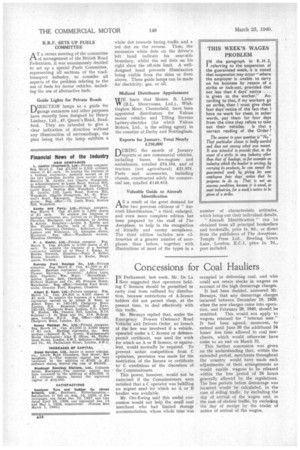THIS WEEK'S WAGES PROBLEM N the paragraph in R .H.2,
Page 16

If you've noticed an error in this article please click here to report it so we can fix it.
I referring to the suspension of the guaranteed week, it is stated that suspension may occur "where the employer is unable to carry on his business by reason of a strike or lock-out, provided that not less than 4 days' notice .
is given to the worker." According to that, if my workers go on strike, then I must give them four days' notice of the fact that I have no work for them, In other words, pay them for four days from the time they refuse to take out their vehicles. Is that a correct reading of the Order ?
The answer to your question is "No." That particular clause is badly worded and does not convey what was meant. It was intended to provide that, in the event of a strike in any industry other than that of haulage, as for example an industry which the haulier is serving, by carrying its products, he can cancel the guaranteed week by giving his own employees four days notice that he proposes to do so. That is not an onerous condition, because it is usual, in most industries, for a week's notice to be given of a strike.




















































